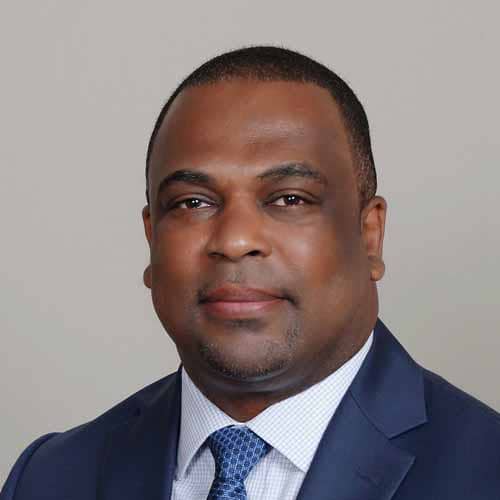
A New Blueprint for Caribbean Energy Independence
Comprehensive New Green Energy Transition Report Released Today
Amid rising energy prices, economic volatility and climate vulnerability, a new report from RMI lays out a bold, achievable path for Caribbean nations to secure energy independence and resilience — powered by the region’s most abundant resources: the sun, wind, and geothermal heat.
The report, “A Caribbean Regional Transition Scenario,” presents a practical roadmap for governments, utilities, and communities across the region to transition to renewable energy in a way that is cost-effective, reliable, and just.
“In Antigua & Barbuda, owning your own energy is no longer a luxury — it is a necessity,” said David Gumbs, Director of RMI’s Islands Energy Program and former CEO of ANGLEC, Anguilla’s Electricity Utility. “Every country, including Antigua & Barbuda, in this region has the potential to own its energy future — but we must act now.”
The Challenge — and the Opportunity
Electricity prices in the Caribbean remain among the highest in the world, straining households and limiting job creation and economic growth. Many nations still rely heavily on imported fossil fuels, leaving them vulnerable to external price shocks and supply disruptions in this increasingly volatile world.
The report finds that modern solar and battery systems can now outperform fossil fuels economically in most contexts, offering both immediate savings and long-term stability. It demonstrates that a phased transition — beginning with a 50% renewable share by 2030 and 100% by 2035 — is both achievable and cost-effective.
In Antigua & Barbuda, the transition to renewables offers a pathway to lower bills, improved resilience, and new job opportunities — from solar installation to energy systems designed to support the new jobs that low-cost energy will create in the economy.

“The Caribbean offers a unique convergence of high renewable energy potential, some of the world’s highest electricity prices due to imported fossil fuels, and strong political commitment to climate leadership and resilience—making it one of the most attractive emerging markets for renewable energy investment today,” noted Laetitia De Marez, Senior Director of the RMI Islands Energy and Catalytic Finance Programs.
A Path Forward – For the Entire Caribbean
This publication was informed by deep regional consultation and collaboration, as well as by decades of work and partnership across more than 20 Caribbean nations. It serves as an actionable toolkit for countries to leverage in their transition plans, laying out the opportunities and challenges inherent in the region’s transition, and includes specific recommendations for:
- Tailored Energy Pathways: Caribbean nations are advancing diverse energy transition models — from decentralized solar to utility-scale renewables and geothermal — based on their unique national contexts.
- Renewables Outperform Fossil Fuels: Solar PV with battery storage and other renewables offer better long-term economic value and energy security than diesel or natural gas, and a pathway to 100% renewable energy for the region is both economically and technically viable by 2035.
- Government Leadership Is Crucial: Strong policy direction, regulatory reform, and utility modernization are needed to enable private investment, create domestic energy markets, and accelerate the transition.
- Regional Cooperation Is Key: A unified Caribbean approach with shared targets and harmonized policies is essential to attract the estimated US$11 billion needed by 2030 and ensure equitable benefits.
- A Just Transition with Economic Benefits: The shift to renewable energy offers opportunities for local job creation, workforce development, and more inclusive economic growth across Caribbean communities.
Importantly, the transition must be inclusive. That means ensuring benefits reach rural households, small businesses, and vulnerable communities — not just large-scale investors.
“Energy reform must not leave people behind,” said Gumbs. “It’s about putting people at the center — empowering communities, creating jobs, and building lasting resilience.”
Read the Full Report
The full RMI report, “A Caribbean Regional Transition Scenario,” is available here:
https://rmi.org/insight/a-caribbean-regional-transition-scenario/
Now is the time. As Caribbean parties prepare to update their Nationally Determined Contributions and policy statements ahead of COP30, this report provides analysis and solutions that can help the region usher in a new era of clean, reliable, and locally produced energy.
Advertise with the mоѕt vіѕіtеd nеwѕ ѕіtе іn Antigua!
We offer fully customizable and flexible digital marketing packages.
Contact us at [email protected]
















A total lie that Antigua venture into renewable energy will make for lower electricity bills,
The foolish and complicit politicians sign a document with the hadeed that freezes cost on electricity consumption to the APUA the former energy producing entity who was purposely decapitated from the inside by its electricity manager and general manager to facilitate the hadeed family power station contract with the government.
Not even the solar or wind turbine Apua puts up will make electricity cheaper, it have no effect but to stabilize the transients experience by the private power station to keep it online in transients circumstances. The APUA is just an entity used to carry out wires on poles to sell the electricity, and APUA is not an advance utility body when it comes to maintenance of these electricity pole distribution so it suppress electricity daily unlike utilities in the develop world that have to work on the energized lines to prevent bankruptcy loosing revenue during electricity down time, with APUA that revenue lost during down time is simply managed by an accountant who have to ignore the meter readers data and estimate at a peak value to maintain salaries and other expenditures. If we had a utility commission as the UPP was to set up back in 2004 when they won, the APUA would have advance it’s work technique and go into hotline work. An APUA linesman had the vision who worked abroad and saw the CSME could displace the present lines trade men in the future if the Trinidad and Barbados and Guadeloupe linesman was to migrate to Antigua to work been more qualified than anything or personnel in APUA presently .so he went and cirtified at northwest linesman college for hotline work technique meaning no power would be off. and had to leave APUA because the present set of supervisors and their subordinate clique felt threatened, they opposed the idea of live lune maintenances because they weren’t that advance and would lose relevance, Apua and the country could have benefitted from that linesman who advance himself that would in term advance APUA, but the electricity manager entitlement to been electricity manager is that he attend university and have the academic qualifications, not the experience, no internship, never work any place else in his life or went up on a pole near electricity or constructed a pole structure, for example APUA doesn’t have a pole framing measurements standard, so they can’t estimate material cost quantity accurately, so customers applying for pole structure is charged exorbitantly.
Now to the power augmentation by solar panel reducing cost is something that will never happen, the contract the electricity manager and the politicians sign with the hadeeds prevent any revenue reduction because APUA can’t pass on to you what they themselves can’t get from hadeed.
The APUA operates in an anomaly off of the British system leaved to us since independence, we should have something or title of someone called a ” generation engineer” which is responsible for upkeep of the APUA generation plant, the title electricity manager is just someone responsible for pole planting and running wires and is out of his area of competency to go manage a power station and that’s Antigua problem, I have worked in utility companies abroad and this is what obtains. The APUA need restructuring to save it from going over completely to the one percenters and create a future of high cost electricity to consumers in the future, that electricity manager and politicians and board members should be brought to an inquiry to answer the betrayal of the fiduciary trust the people reposed in them.
Stop with these stupid articles. No Antigua government is interested in renewable energy. Not since they need electricity to subsidize water. That is our reality. If APUA electricity loses business to renewables, whether solar or wind, then their revenue will fall and they will be unable to subsidize the ultra expensive production of water. Then Antiguan will bawl murder when they have to pay the real economic cost of water.
Comments are closed.